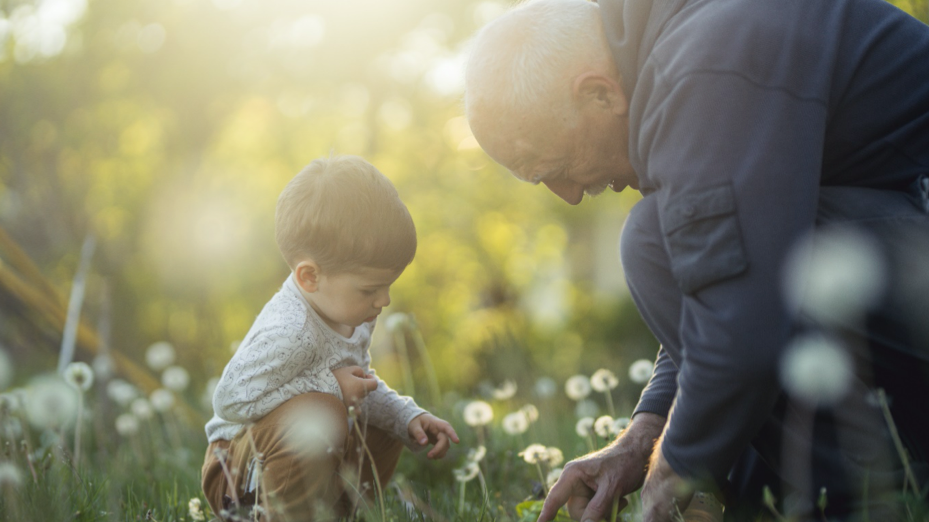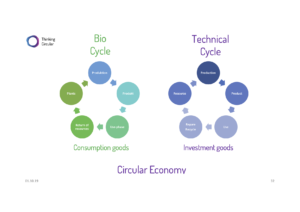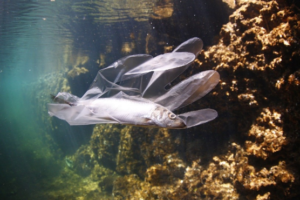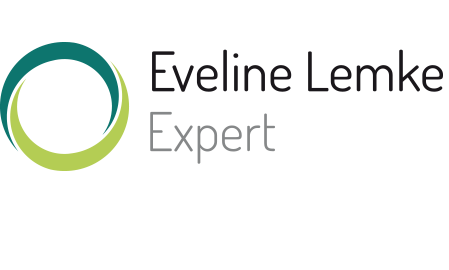
Circular Economy for Our Grandchildren’s Future
Prosperity and dependency on resources are the twins of the economic paradigm of continuous growth. How can we leave a living planet behind for our children and grandchildren – the decoupling of resource use must be part of the answer? Above this approaches to sustainable paradigm shifts range from green growth to post growth. They share the awareness that unlimited growth does not work on a limited planet. What comes after growth?
Dr. Bettina Hoffmann, MdB, spokeswoman for environmental policy and environmental health for the parliamentary group of BÜNDNIS 90 / DIE GRÜNEN, has a concept: a resource-effective, non-toxic and climate-neutral circular economy. Materials, fluids and substances must be kept in economic lifecycles and increasing waste and growing landfills must come to an end. She describes the concept in her discussion paper published in February 2020. And invites to take the term “discussion paper” seriously. Comments and suggestions are not only welcome, but are essential to turn ideas into reality.
 One remark on the definition of terms in advance: Dr. Bettina Hoffmann, MdB, uses the German term “Kreislaufwirtschaft” in her discussion paper. Because the German term is historically associated with waste, we do not want to use the term here, but rather introduce “circular economy”. Our vision is a world without waste. This is the fundamental different to actual take-wast-dispose habits. All materials should be reused indefinitely. They shall do no harm to people or nature. This can lead to positive benefit only by every economic activity. Dr. Bettina Hoffmann, MdB, describes such a vision in her paper. Therefore, in this statement we use circular economy equivalent to the term “Kreislaufwirtschaft” which Dr. Bettina Hoffmann, MdB, uses in her discussion paper.
One remark on the definition of terms in advance: Dr. Bettina Hoffmann, MdB, uses the German term “Kreislaufwirtschaft” in her discussion paper. Because the German term is historically associated with waste, we do not want to use the term here, but rather introduce “circular economy”. Our vision is a world without waste. This is the fundamental different to actual take-wast-dispose habits. All materials should be reused indefinitely. They shall do no harm to people or nature. This can lead to positive benefit only by every economic activity. Dr. Bettina Hoffmann, MdB, describes such a vision in her paper. Therefore, in this statement we use circular economy equivalent to the term “Kreislaufwirtschaft” which Dr. Bettina Hoffmann, MdB, uses in her discussion paper.
Why do we need a circular economy? Dr. Bettina Hoffmann, MdB, makes clear: Make-Take-Dispose must come to an end. Our waste system cannot be stabilized in the long term, neither ecologically, economically nor socially. It is a waste system that can’t digest the ongoing consumption of plastic and other critical substances and that does not prevent the poisoning of people and environment. As the negative environmental impacts of this system grow on the one hand, on the other hand mountains of raw materials at dumps are growing either. Raw materials that could be reused in economy. In the ironic face of dwindling resources, this gives two and more reasons to take a closer look at the circular economy.
But though the EU has recognized the potential of circular economy as source of ecological, economic and social stability, its development is stagnating. And while the EU, compass in hand, is still trying to identify the direction to go, Germany looks over the shoulder of the EU with lack of enthusiasm.
The paper of Dr. Bettina Hoffmann, MdB, offers hope to jog Germany’s memory that circular economy may be an important topic in face of climate change. Furthermore, she doesn’t leave Germany alone with the mammoth task of finding ideas how to do it, but instead holds hands with identifying five areas of action:
- Designing products for waste prevention and circular economy
- Understanding products as raw materials
- Defining the material mix of the future
- Promoting the production and demand of high quality recyclates
- Establishing a German Institute for Circular Economy
What does it mean to design products circular? How is another product design adding value? Niko Paech, German economist and professor in the field of plural economics at the University of Siegen with research focus in the fields of environmental economics, ecological economics and sustainability, once said that either a transformation of our economic system happens “by design” or “by disaster” (1). Well, design sounds good then. If products are designed in such a way that they are e.g. easier to disassemble, they can easily be repaired, or recycled and reused. The lifecycle of products could be extended. Substances could be better returned to the cycle. Dr. Bettina Hoffmann, MdB, clarifies the need for action using the example of a global good that nearly everyone uses: Our smartphone. Instead of being annoyed of a broken phone after only two years, consumers can happily enjoy a repairable or even rented cell phone, because using instead of owning can be a motto here. And when users dispose their smartphone at the manufacturer, the manufacturers come to know the true promise of receiving a business-critical raw material source. But what does it need to turn this solution into reality? First of all: An agreement.
“For a successful circular economy we need a more intensive social discussion about which chemicals and materials we should use in our products in the future,” Dr. Bettina Hoffmann, MdB, states. And she is right. While some fabrics such as glass or steel are easily recycled and therefore already in high demand for people who look for sustainable alternatives, plastic differs widely in its recyclability. One-way plastic does not even find its way back into the technical cycle, but only ends up in the food cycle as microplastics when we eat fish for instance.
 To avoid such photos in the future, it is important to promote high-quality recyclates. And for the consumers to demand for it. While manufacturers have to be held politically and economically responsible, consumers have to take responsibility as well. Because every purchase sends a signal. It is a mission of many to enable consumers to act responsible by making alternatives available.
To avoid such photos in the future, it is important to promote high-quality recyclates. And for the consumers to demand for it. While manufacturers have to be held politically and economically responsible, consumers have to take responsibility as well. Because every purchase sends a signal. It is a mission of many to enable consumers to act responsible by making alternatives available.
Developing such alternatives could be a task of the German Institute for Circular Economy, which Dr. Bettina Hoffmann, MdB, describes as the last field of action. An intermediary to discuss not only biological and technical issues, but also how the transformation to economic cycles, the socio-political implementation and social innovation could succeed.
Thinking Circular shares the opinion of Dr. Bettina Hoffmann, MdB, of circular economy being a topic of high interest and high potential that needs to become high priority to Germany. Dr. Bettina Hoffmann, MdB, also identified the right fields of action in her paper. And as a think tank for circular economy, Thinking Circular if full of joy and gratitude that someone in the German Bundestag has gird oneself for the battle with the inert greats. And hopefully turns slow thinking into fast thinking.
Sources:
[1] Paech, Niko (2016): Befreiung vom Überfluss : auf dem Weg in die Postwachstumsökonomie. Seite 143.9. Aufl. München: oekom Verlag.



No Comments